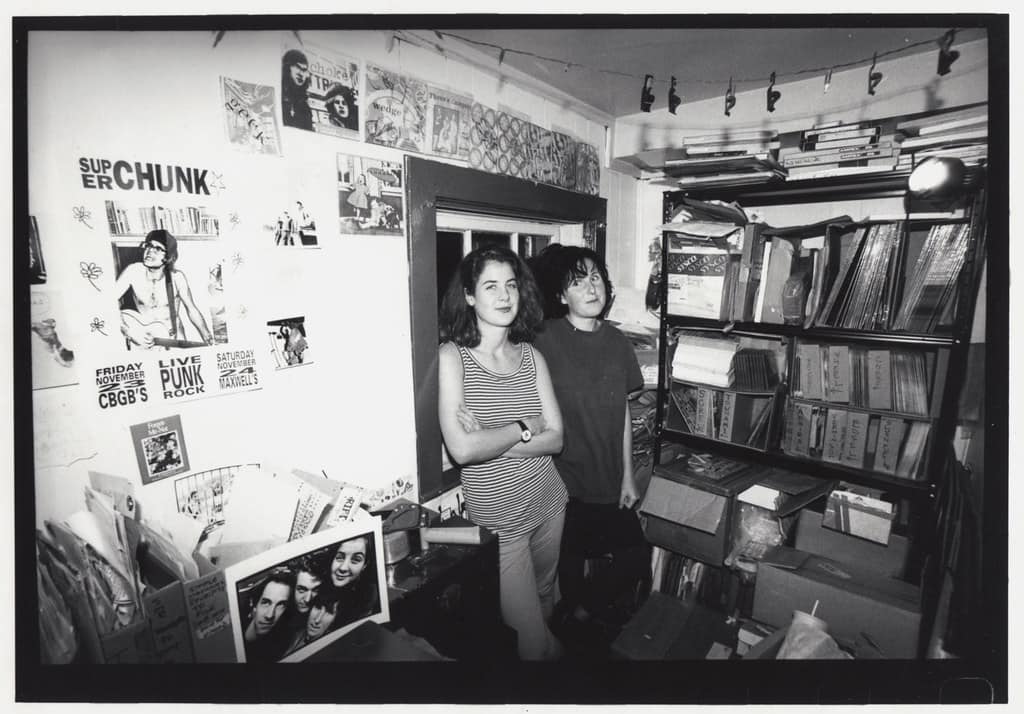In many ways, stories are more important then truth. The stories that we tell ourselves, whether they are “true” or not, shape the world we live in and control when and where we will see opportunities or obstacles. Here’s a story that I was told when I was around 18. A lot of this story ended up being true, though bits and pieces were exaggerated either by the person who told me the story or in how I’ve remembered it.

The story concerns the above two women, Jenny Toomey and Kristin Thomson. Jenny and Kristin had a band called Tsunami out of DC in the 90s. They also ran a record label called Simple Machines Records. One of the more famous releases on Simple Machines wasn’t music though, it was a pamphlet called the Mechanics Guide.
The story as I was told/remember was that after being in Tsunami and a couple of other bands and running Simple Machines for a little while, Jenny and Kristin got together with some of their friends and decided to put everything they had learned down on paper so they could share it with other people. How to book a show, how to book a tour, how to record your band, how to turn that recording into an actual release, how to start a label, how to promote a label, etc. And the instructions were pretty low level. Not just ‘send your record to a record pressing plant’, but ‘here’s the plant that we use and what they charge us, and here’s another plant that our friends use and their rates’.
The idea was that it was everything you needed to know to start taking part in your culture in whatever way that meant for you. If you were the kind of person to form a band, here’s what you need to know. If you were the kind of person who’d rather form a label or a zine or book shows, here’s what you need to know. It was rooted in the idea that the reason most people were passive in their culture was because they didn’t know how to be anything else. So, teach them how to be active in the culture and some of them will go and do that.
I’ve been thinking about this story a lot recently and what it means. Not just in its promotion of DIY culture, but in what it says about helping the people that came after you. At the end of the day Tsunami were a great band and Simple Machines was a great label, but neither of them was revolutionary. People had done these things before and they’d do them afterwards. The revolution came in Jenny and Kristin’s decision to help the people who came after them. To make it a little easier and to share the knowledge they’d learn. An act that I still see as the punkest thing anyone has ever done.
Like I said, when I finally got around to looking into this story I found that a good chunk of it was actually true, though may be exaggerated. If you’re curious about the official story, you can find that here on the Simple Machines website.
Epilogue
Jenny and Kristin closed up Simple Machines in the late 90s after Kristin moved to Philly and they got got burned out on the business side of running a label. As an encore though they joined forces with several friends and founded the Future Of Music Coalition which helped independent musicians make sense of the new digital landscape and lobbied governments to ensure that independent musicians had a seat at the table as the new rules were being drawn up.
Jenny currently works at the Ford Foundation.
Kristin currently works at the Media Democracy Fund.